How Safe Is Costa Rica?
Costa Rica has become one of the most popular expat and digital nomad destinations in Latin America, known for its natural beauty, relaxed lifestyle,...
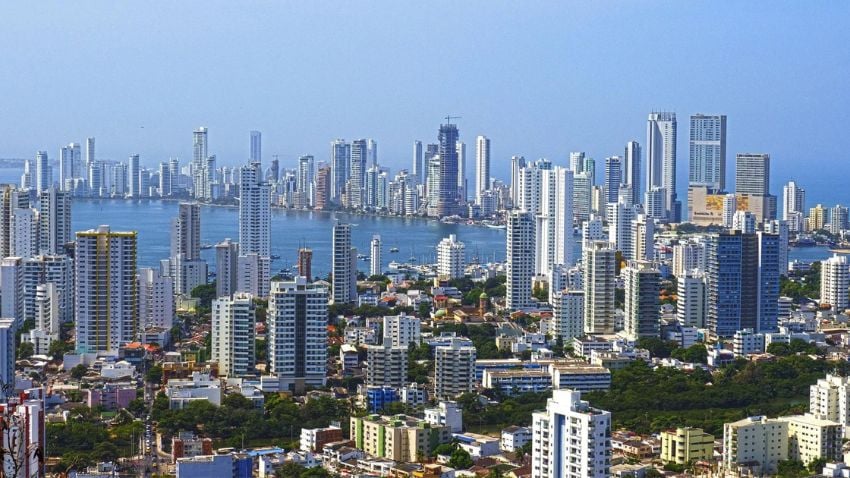
6 min read
Colombia is an incredible country. The people are very friendly and hard-working, and the country is rich with mountains, tropical rainforests, coastal regions, and generally rugged topography.
Colombia, with its diverse landscapes, vibrant culture, and growing expatriate community, has become an increasingly popular destination for individuals seeking residency in South America. Fortunately, Colombia offers several categories and pathways for obtaining residency, making the process relatively straightforward for many.
Colombian cuisine is an interesting mix of Spanish and native influences. Dishes are generally quite hearty and flavourful, with an excellent blend of quality ingredients and spices.
The cost of living in Colombia is incredibly inexpensive, and almost everything is significantly cheaper than in Europe or North America. Hotels, taxis, and restaurants all cost a fraction of what you would normally pay, especially in working-class barrios or outside of tourist areas. Flights within Colombia are also very inexpensive, so it is very easy to explore different regions and cities.
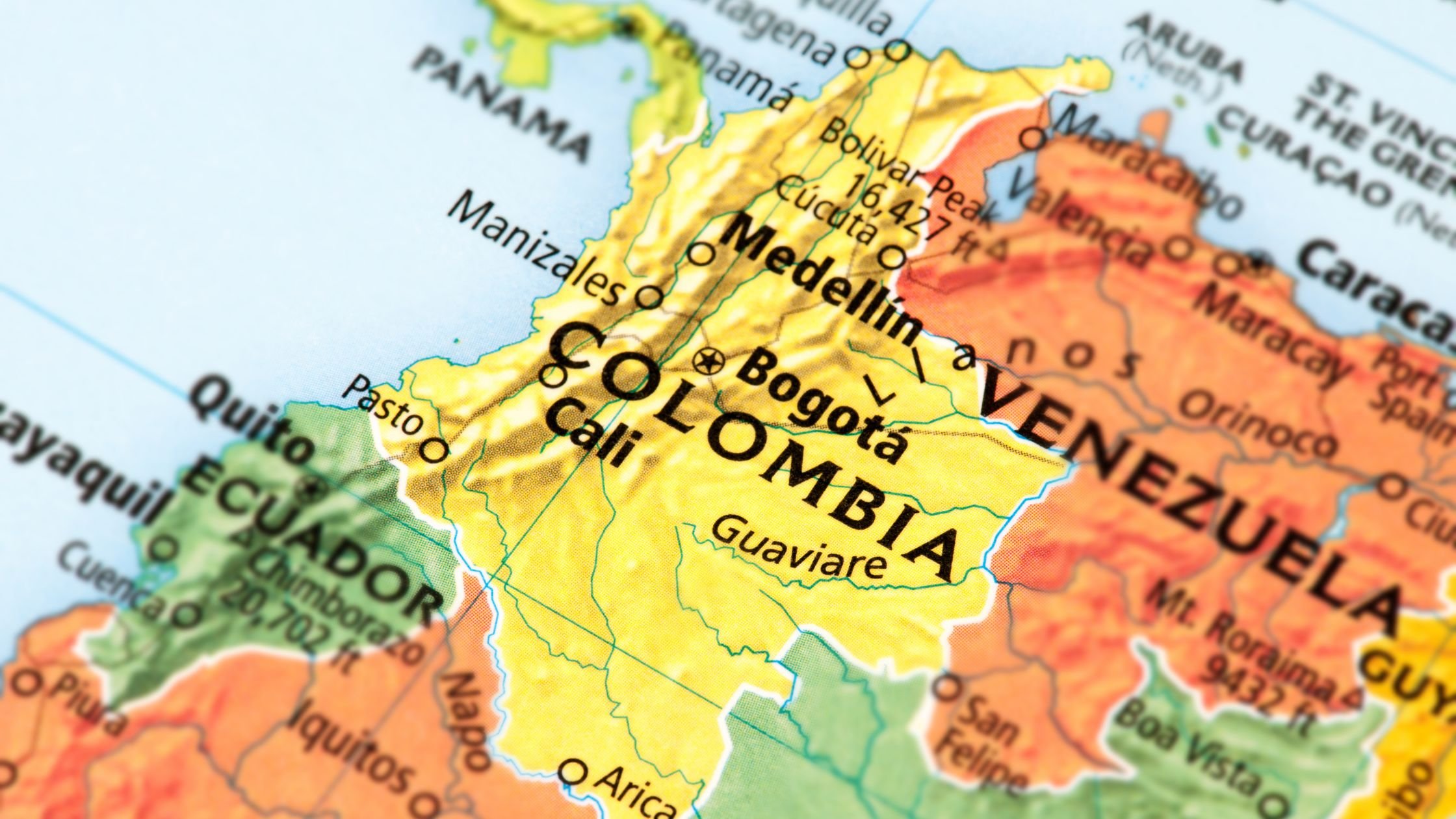
Map of Colombia
One of the most common methods to secure residency in Colombia is through a visa application. Colombia offers various visa categories tailored to different situations and experiences. For instance, the retirement visa is an attractive option for those looking to retire in Colombia. To begin your journey, gather the necessary documentation, including your birth certificate and any other required paperwork.
In order to obtain temporary residency in Colombia beyond the three months allowed with a tourist visa, you need to apply for a migrant visa. A migrant visa permits a stay in Colombia of up to three years and can be renewed when it expires. There are different types of migrant visas depending on why you want to move to Colombia. They are:
M1. This visa is for if you have a Colombian partner and wish to live with them;
M3. This “Mercosur” Visa is for citizens from other countries in Latin America and refugees;
M5. This is for foreigners who have employment in Colombia;
M6. If you invest at least 100 times the monthly minimum wage in a business, you can qualify for this business investor’s visa. Currently, the minimum wage in Colombia is 1 million pesos, so you would have to invest 100,000,000 pesos or around $25,000 USD;
M7. The so-called “expertise” visa is for professionals or skilled workers whose high level of technical competence is needed in Colombia;
M8. The religious visa. This is for priests, nuns, or other people coming to Colombia to practice religion or help out at a church or other religious facility;
M9. The student visa. This visa is for anyone who is pursuing post-secondary studies at a Colombian University;
M10. Property investment visa. Anyone who invests 350 times the minimum wage or 350,000,000 pesos in real estate can qualify for this type of temporary residence visa, which is around $72,000 USD;
M11. Pensionista visa. In order to qualify for this visa, you need either a pension, which is 3x the monthly minimum wage or 3 million pesos or you need monthly income from investments that is at least 10x the minimum wage or 10 million pesos.
Once you've collected the required documentation, the visa process typically involves submitting your application at a Colombian consulate or embassy in your home country. The consulate will guide you through the steps, which may include an interview to assess your eligibility and intentions for residing in Colombia. This interview is often a simple formality aimed at ensuring that you meet the visa requirements.
Related content: How To Get Your Residency In Cyprus
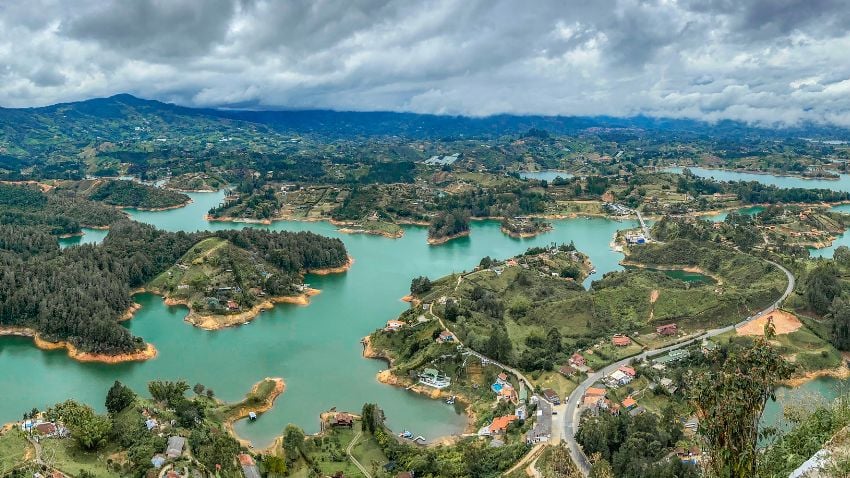
Peñol Stone in Guatape in Colombia
There are a number of different ways you can qualify for permanent residence in Colombia. If you were previously a Colombian citizen but had to renounce your citizenship to live in another country, then that is one option. Another is if you have been a holder of a temporary resident visa for two years, in the case of the M1 or M3 category, or five years for the M4 to M11 visas.
For those seeking to become permanent residents, Colombia offers a pathway through an investment visa. By investing in the country, such as purchasing real estate or making a significant financial contribution, individuals can expedite their residency process. This option allows for quicker changes in status from non-citizen to permanent resident.
Another way to qualify is to invest 650 times the monthly minimum wage in either a business or real estate. Finally, if you are the parents of a child of Colombian nationality, then you can also qualify for permanent residency. In addition to investment visas, Colombia also offers visas for individuals with specific skills and experience. Professionals and experts in various fields can secure work visas to contribute their talents to the country. This approach not only benefits the individual but also adds value to Colombia's workforce.
For expatriates who are already living in Colombia on a tourist visa or as non-citizens, transitioning to permanent residency is also possible. By following the established procedures and submitting the necessary documentation, you can change your status from a temporary visitor to a permanent resident.
Once you have the permanent residence visa, it is valid for life. You do not have to renew it, but after five years, you will have to renew your ID card. That being said, if you spend more than two consecutive years away from Colombia, your permanent residence visa will expire.
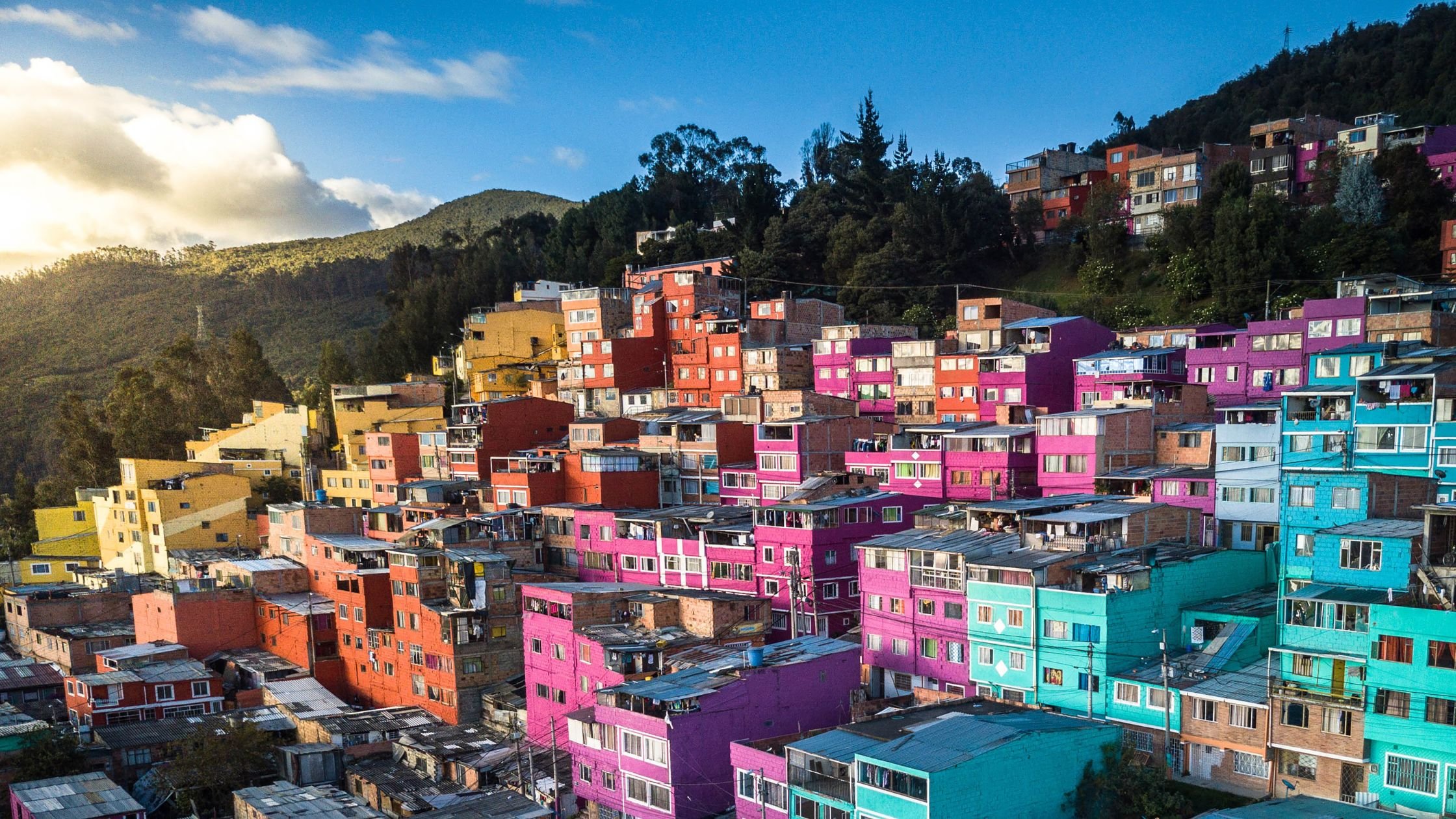
Bogota, Colombia
One of the great things about applying for a Colombian visa is you can do the application online here. Simply fill out that application and attach any required documents, pay your fee, and you are good to go. The process could not be any easier. Please note that you can apply for a migrant visa either from within Colombia or from another country with a Colombian consulate. Then, once your visa is approved, you can enter Colombia with it, and you will have to visit the Migracion Colombia office (the Colombian Ministry of Foreign Affairs) and register your stay.
After your visa is approved, you'll arrive in Colombia and complete your registration with local authorities. This step is crucial to obtain your identification card, which confirms your resident status. With your identification card in hand, you'll enjoy the privileges and rights of a Colombian resident.
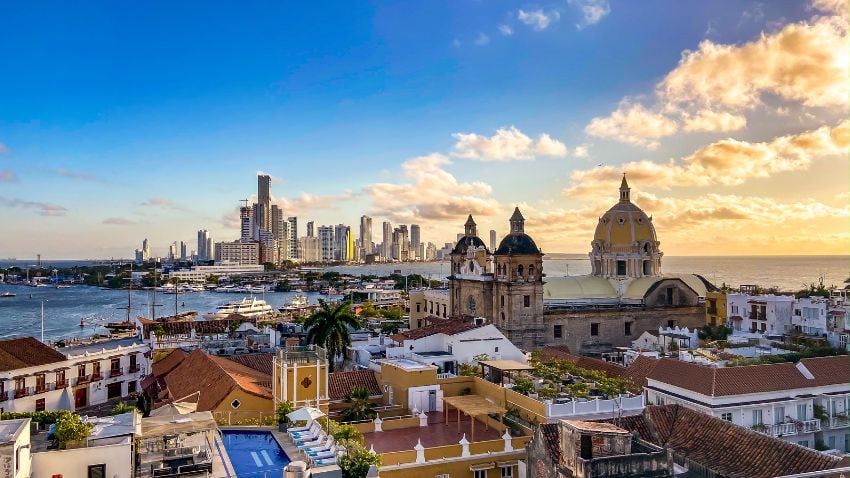
Streets of Cartagena in Colombia
The most obvious benefit of Colombian residency is that you can reside there year-round. So if you want to put down roots, own property, lease an apartment, find employment (assuming that your migrant or permanent residency visa permits that), start a business, or otherwise have a life in Colombia, you will need either a migrant or permanent resident visa.
One notable advantage of obtaining residency in Colombia is the country's strategic location in the heart of the Caribbean and South America. This provides residents with easy access to stunning Caribbean beaches, diverse ecosystems, and neighbouring countries for travel and exploration.
Another advantage to the migrant visa specifically is that it is a pathway to permanent residency if you are looking to spend the rest of your life in Colombia. After five years of permanent residency, you can apply for Colombian citizenship. Having Colombian residency is also helpful if you want to open a bank account or sign up for services like high-speed internet that require long-term contracts.
Related content: The Basics Of How To Get A Second Passport Or A Second Residency
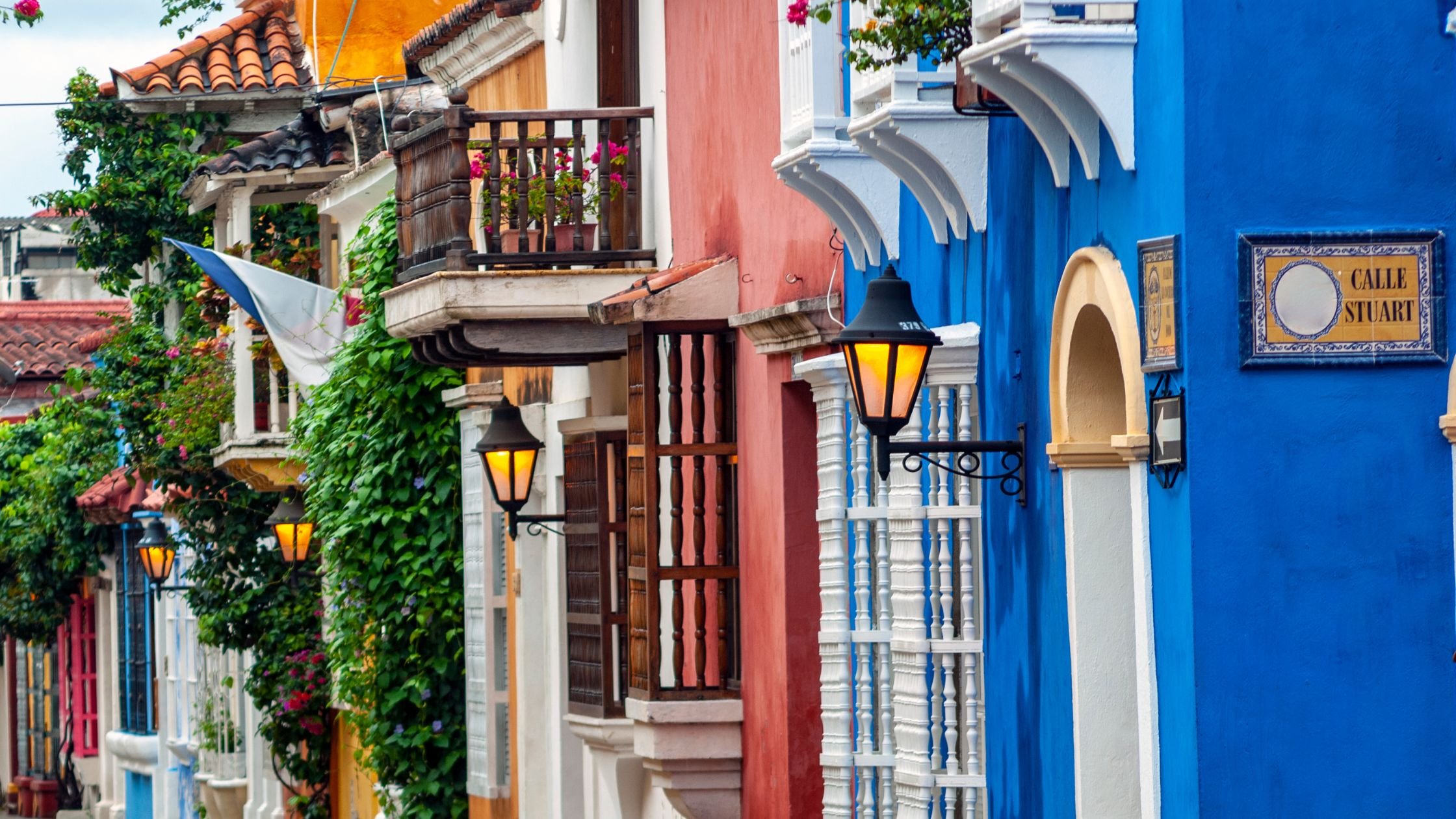
View of Cartagena de Indias, Colombia
If you become a tax resident of Colombia by living there for more than half the calendar year, you then owe taxes to the Colombian authorities on all worldwide income. Non-tax residents are only taxed on Colombian-sourced income. Colombia has a progressive income tax with a top rate of 39% and a corporate tax with a top rate of 31%. The exact income tax brackets are as follows:
41,424,460 or below 0%
41,424,460 to 64,606,800 19%
64,606,800 to 155,816,400 28%
155,816,400 to 329,494,680 33%
329,494,680 to 720,935,880 35%
720,935,880 to 1,178,124,000 37%
1,178,124,000 or more, 39%
Because Colombia taxes worldwide income, you will definitely want to consider seriously whether you want to become a tax resident of Colombia. Aside from the 183-day requirement, several other criteria may get you recognized as a tax resident of Colombia. Those are:
If your spouse and/or dependents reside in Colombia for 183 days or more out of any 365-day period.
If over half of your income is sourced from within Colombia.
If over half of your assets are located in Colombia.
If your tax residence is considered a “tax haven” by Colombian authorities.
If you have no proof that you have tax residency in another country.
You can click here for more information on other types of taxes in Colombia, such as property tax.
Related Content: How To Obtain Residency In Ireland To Live and Work
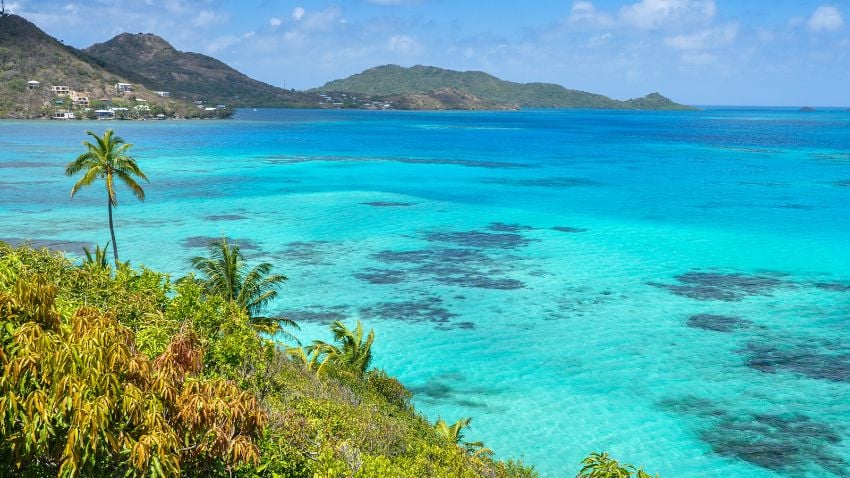
Providencia Island near San Andres. Colombia
Colombia has a very rich natural setting in which to explore and relax, with a lot of diversity for nature lovers. Today, the best program to go for is real estate and property investment migrant visas for those who wish to obtain permanent residency in Colombia. The requirements are pretty much documents as proof of who you are, certificates for dependents and spouses, an investment as low as $25,000 USD, a background check as proof of being a good citizen, and a clean bill of health.
Colombia is a country with ease of entry, even though the government has started being more selective. Many of Colombia's citizenship and residency laws were changed in 2022. For more information, contact us at expat money.
If you want the best intel from the expat world, including profitable offshore opportunities, little-known tax-saving strategies, and hard-won insights on immigration, passports, and Plan-B residencies, all delivered to your inbox every single week, then join our daily correspondence, EMS Pulse®. Currently enjoyed by over 84,000 expats and expat-hopefuls worldwide. Fill in the form below to join our newsletter free:

Written by Mikkel Thorup
Mikkel Thorup is the world’s most sought-after expat consultant. He focuses on helping high-net-worth private clients to legally mitigate tax liabilities, obtain a second residency and citizenship, and assemble a portfolio of foreign investments including international real estate, timber plantations, agricultural land and other hard-money tangible assets. Mikkel is the Founder and CEO at Expat Money®, a private consulting firm started in 2017. He hosts the popular weekly podcast, the Expat Money Show, and wrote the definitive #1-Best Selling book Expat Secrets - How To Pay Zero Taxes, Live Overseas And Make Giant Piles Of Money, and his second book: Expats Guide On Moving To Mexico.
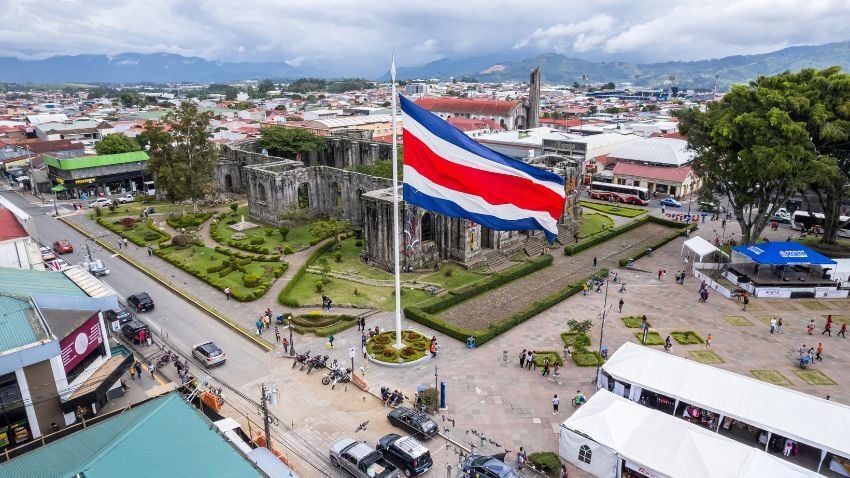
Costa Rica has become one of the most popular expat and digital nomad destinations in Latin America, known for its natural beauty, relaxed lifestyle,...

Mexico remains one of Latin America’s most compelling destinations, especially for North Americans. More than a million expats call it home, and tens...

South Korea is far more than K-pop and K-dramas. It is a country known for outstanding food, from bustling street markets to high-end dining, as well...